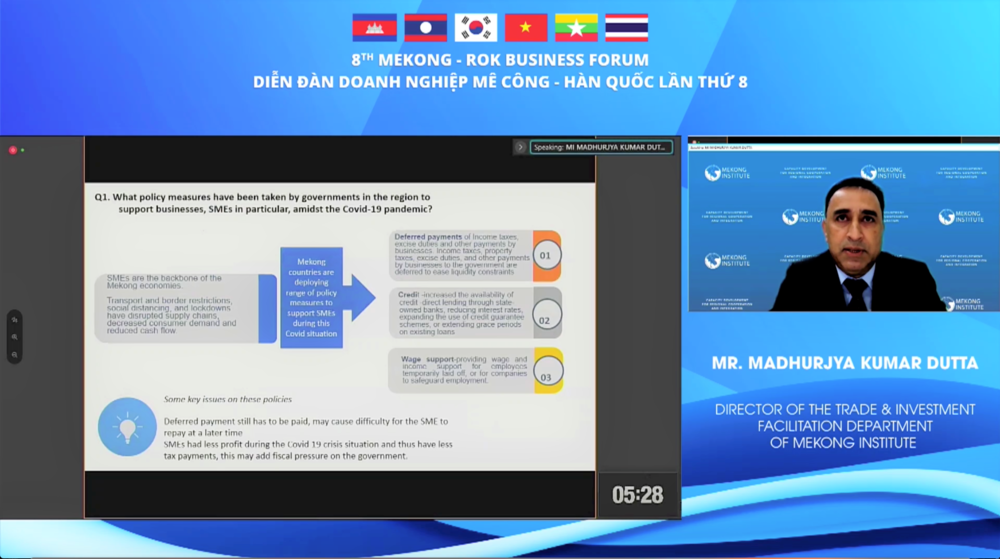“The Republic of Korea (ROK) is a strong partner of the Mekong region, as it works to narrow the development gap, enhance regional connectivity, and foster deeper cooperation among Cambodia, Lao PDR, Myanmar, Thailand, and Vietnam.”
This was the statement of Mr. Madhurjya Kumar Dutta, Mekong Institute Director of Trade and Investment Facilitation and Fund Manager of the Mekong-Republic of Korea Cooperation Fund, during the 8th Mekong-ROK Business Forum last December 4, 2020 via digital platform.
Under the theme “Navigating in the New Normal Towards Sustainable and Inclusive Growth and the Role of Mekong-ROK Cooperation,” Mr. Dutta was one of several panel speakers who presented recommendations on ways forward for Mekong countries to collectively create an enabling environment through policies, programs, and infrastructure support that will facilitate the smooth and sustainable recovery of economies in the region.
“Small- and medium-sized enterprises (SMEs) are the backbone of Mekong economies. It is imperative that we continue to create policies to open alternative revenue streams, market opportunities, and continuously invest on the capacity enhancement of business owners and workers in the areas of e-commerce and digital technology so they remain competitive in meeting demands of the new market,” he said.
Mr. Dutta also explained that in helping SMEs’ thrive, the economies of the Mekong region would be less vulnerable to economic shocks and uncertainties, and countries will benefit from an emerging digital entrepreneurship culture.
“This is why we must work together, with support from ROK, to encourage more public-private partnerships, invest in continued and targeted capacity building initiatives, so governments, business enterprises, and communities can transcend challenges and maximize opportunities of this new normal,” he said.
Over 350 representatives from government ministries, sectors, local business associations and enterprises attended the Forum. Key topics tackled included the short- and long-term effects of the COVID-19 pandemic, development trends, challenges and opportunities facing businesses, particularly SMEs, and government policies supporting post-pandemic recovery.








